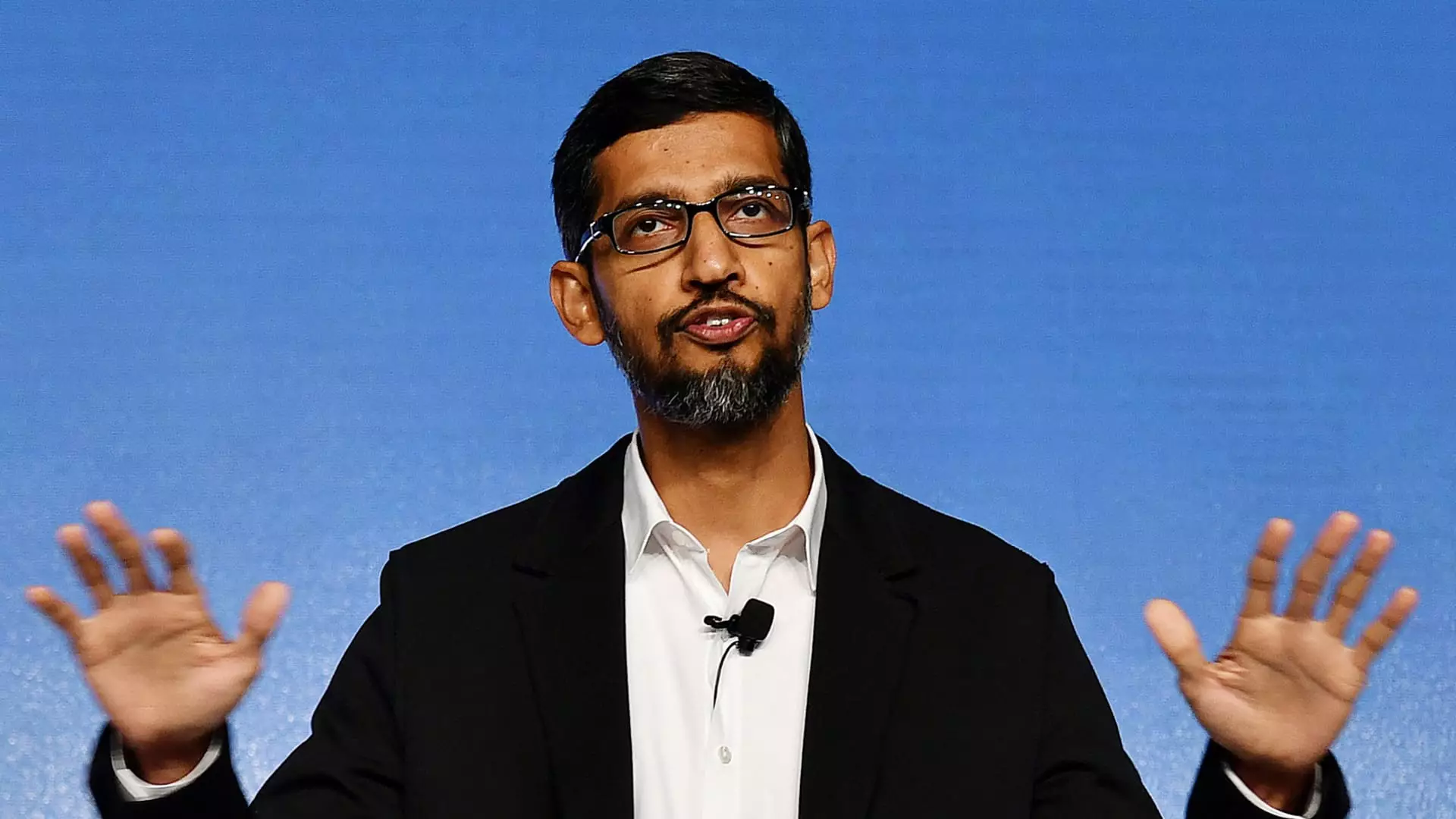In an era defined by hyper-polarized discourse and increasing scrutiny of tech giants, Google’s recent approach to moderating political conversations among employees raises significant questions about the balance between workplace culture and free speech. As the tech giant gears up for the upcoming U.S. elections, it is tightening the reins on internal discussions around politics, evidencing a trend that could have far-reaching implications for employee engagement and corporate governance.
The current atmosphere at Google regarding internal political discourse comes against the backdrop of extensive past controversies. Since 2019, when Google adopted restrictive policies to curb statements that could “insult, demean, or humiliate” colleagues, there has been an evident shift in the company’s corporate culture. This transformation marks a pivotal move towards limiting potentially divisive conversations as a means of nurturing a more cohesive work environment. However, it raises a critical inquiry: at what cost does this attempt for harmony come?
While aiming for a designated level of professionalism, Google risks stifling employee expression and engagement. Many staff members have pushed back, arguing that these newly imposed restrictions are overly broad and question the necessity of silencing their opinions—especially in a context that is rapidly evolving and often shaped by political currents.
In an internal memo sent to employees, Google CEO Sundar Pichai emphasized the need for neutrality, aiming to reinforce the company’s role as a “trusted source of information.” He urged employees to remember their responsibility in guiding users towards “high-quality and reliable information.” However, this insistence on neutrality might inadvertently silence critical perspectives that could foster a richer dialogue.
Exactly how does one maintain a semblance of neutrality in a space where personal beliefs naturally seep into work conversations? As more companies aim for a balanced workplace, Google’s approach seemingly sidelines the nuances of individual expression, reducing the dialogue to mere compliance with established guidelines. Employee morale may suffer under a regime that emphasizes conformity over constructive dissent.
The restrictions surrounding political expressions extend well beyond mere memes or casual remarks. The algorithmic scrutiny now applied to internal platforms like Memegen, which has recently expanded its character limitations, poses challenges to how employee communities function. The update even states that offending employees can face bans after multiple violations, painting a restrictive picture of internal expression. Employee experiences on these forums reveal a growing tension between compliance and authentic self-representation.
Additionally, these policies occur in a landscape where employee activism has gained significant traction. The criticism of Project Nimbus—a $1.2 billion cloud contract with the Israeli government—highlights that suppression of discourse may not only impact morale but also hinder the company’s ability to tackle significant ethical concerns arising from its contracts and partnerships.
Google’s moderation efforts, while aimed at curtailing the potential for discord, also beg the question of accountability. Amid growing scrutiny from the public and media about the responsibilities of tech companies, should they not also be accountable to their employees in fostering a culture of transparency?
By enforcing strict guidelines on political discussions, while simultaneously being enmeshed in such discussions—especially as the public and influential political figures like Donald Trump seem to reckon with them—the company positions itself in a contradictory stance. Shouldn’t employees feel empowered to share and discuss, especially when their actions may directly affect how the company is perceived externally?
Navigating Turbulent Waters: Seeking Balance
As Google progresses on its journey to redefine internal dialogue, it stands at a crossroads. On one hand, fostering a politically neutral environment could enhance productivity and focus; on the other, silencing critical employee voices could alienate a workforce that thrives on diversity of opinion. The challenge rests in finding a balance that empowers employees while still adhering to the ethos of the company as a non-partisan entity.
While Google’s recent measures aim to create a more united internal community, the potential pitfalls of dampening free speech may undermine the very essence of innovation and diversity that the tech giant champions. It is crucial that companies like Google recognize the importance of dialogue, even in matters of politics, and strive for a platform that allows for open expression without fear of retribution.


Leave a Reply